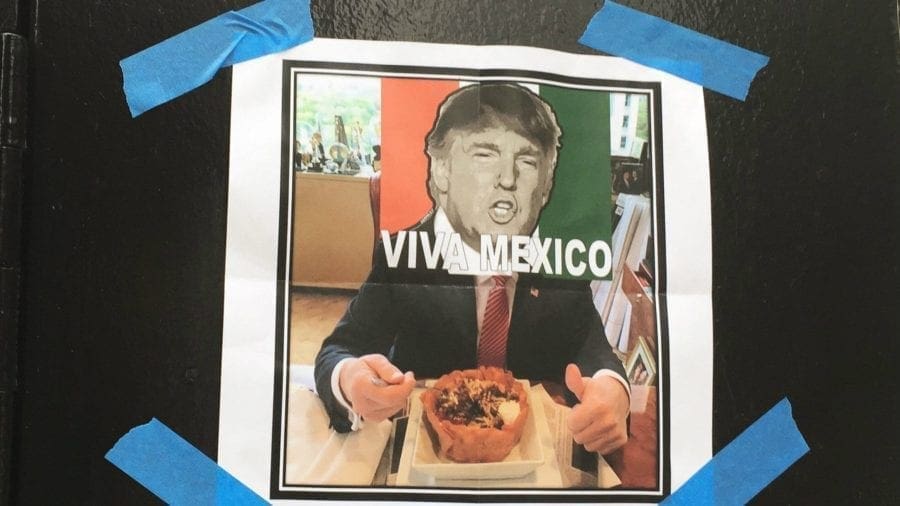The Mexican government is responding to President Trump’s tariff threats, but whether or not a deal is struck on border security, immigration reform still seems impossible.
Like it or not, the 2020 presidential election season is beginning. And while President Donald Trump may be able to make hay of the upcoming Democratic primary debates, he understands that his own base is more focused on him.
That’s the motive behind the recent sudden pressure on Mexico to get tough on its own southern border and prevent illegal crossings into the US. Last Friday, Trump tweeted that if Mexico didn’t “STOP” the illegal crossings, a 5 percent tariff would be imposed on all Mexican exports to the US. That tariff would increase monthly, up to 30 percent come October, Trump swore.

Remember, as Trump’s former biggest fan Ann Coulter likes to remind everyone, that not a single mile of new wall has been built since his 2016 win. Meanwhile, Trump boasts of ongoing building, but that refers to renovations done on existing fencing and wall. He has to appear to be doing more than that, and short of citing his executive power to shut down the border, he will play hard negotiator on trade.
The political theater may pay off for Trump. No one can know for sure, but Mexico is making some moves in an attempt to curry his favor.
The Mexican Finance Ministry froze the bank accounts of 26 people suspected of “links with human trafficking and illegal aid to migrant caravans,” Reuters reported Thursday. Earlier, Mexico sent military and police down to its border with Guatemala, detaining at least 350 migrants, as two migrant rights activists were arrested in Mexico City.
Still, most people don’t see tariffs as an effective tool against illegal immigration. Libertarians certainly understand tariffs don’t produce wealth either, or else the country could get rich simply by stopping trade entirely. Trump doesn’t see that logical end, however.
Economist Ludwig von Mises observed that there can never be enough tariffs to satisfy manufacturers who seek their temporary benefits.
“In the long run the privilege accorded to a definite class of producers loses its power to create specific gains. The privileged branch attracts newcomers, and their competition tends to eliminate the specific gains derived from the privilege. Thus the eagerness of the law’s pet children to acquire privileges is insatiable. They continue to ask for new privileges because the old ones lose their power,” Mises wrote in his magnum opus Human Action.
If economics is too complicated for Trump and his supporters, perhaps the political reality will steer them of these lusts for protectionism.
The US Customs and Border Protection reported this week that over 144,000 apprehensions were made on the US-Mexico border in May. A conservative think tank Princeton Policy Advisors now predicts nearly 1.1 million illegal immigrants will come through this year.
Also, crossing borders are products, which sometimes cross back and forth many times in the production process before they’re ready to sell. Time will tell how a rise in the prices of tariff-affected goods could impact Americans, as their trust in Washington, DC sinks lower and lower.
It’s difficult to imagine the two worst crises happening simultaneously. But immigration and the economy are inseparable in many ways, influencing one another. The US could kill two birds with one stone though. Abolish welfarism. Across the board. Take away the dole for immigrants and for corporations too, such as what’s offered in the form of transnational trade agreements.
That’s not likely to happen by 2020, so here’s hoping Americans discover decentralization as the next best bet.




















